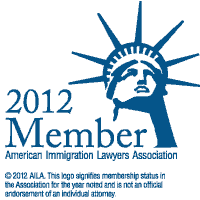Immigration

Immigration law is the body of law that defines how many people are legally allowed to move to the United States from other countries. This body of law controls immigration to the United States and the legislation is created and passed by the national government, not the state and local authorities. Immigration law pertains to the citizenship of people as well as their legal status within the country. If someone is illegally in the country they can be deported if they are discovered and detained.
Each country has their own laws on immigration and set their own quotas on how many people are allowed in their country at a given time via immigration. The United Nations International Covenant on Civil and Political Rights decrees that all countries must allow entry to their own citizens. That may seem weird but a country cannot deny access to its own citizens if they leave the country and wish to return at a later time. For instance, if a couple goes on their honeymoon in Florida and they are natives of Canada. Once they return from their honeymoon from Florida, Canada legally has to allow them back into the country if they are not trying to illegally smuggle anything across the border.
Since each country has their own ability to create their own immigration laws, they also have the ability to mandate different options that immigrants to their country must follow. Some of those mandates could be the length of their stay, whether or not they are permitted to participate in any branch or level of that country's government, whether or not they can become a permanent resident of that country, and how the immigrants must go about obtaining their work visas or their green cards.
A work visa is a legal form that permits a person from another country to work in the United States for a specified amount of time. The visa is usually a stamp placed on the person's passport and it comes with a handful of stipulations such as how long that person may remain in the country, when the visa can be used, and whether or not the visa can be used for more than one entry into the country.
If a foreigner enters a country on just a visa alone, they are not entitled to any other rights pertaining to residency or employment, only the right to enter and visit the country that issued the visa. If that person wishes to obtain employment while visiting the host country they must obtain the work permit mentioned above. If they wish to reside in the host country they then must obtain a residency permit.
Immigration law in the United States is a hot topic and had a major impact on the 2008 Presidential campaign. There was such a backlog in the processing of immigration applications that thousands of potential voters were not able to vote in the 2008 Presidential election. Immigration applications are processed and filed by the United States Citizenship and Immigration Services; also referred to as the USCIS.
The United States enforces immigration law at different checkpoints throughout the country. Those checkpoints are setup along the country's borders with Canada and Mexico and at major airports that have incoming flights from foreign nations. At these checkpoints, anyone entering the country will have their passports, visas, and permits checked by United States Customs Agents. If anyone is trying to enter the country illegally customs agents will detain them and interview them. The person in question might be deported or might be allowed to enter the country after the interview process.
Other documents that must be presented at the checkpoints are a WHO vaccination card, onward tickets, a business card and sometimes the amount of cash the person is carrying. The amount of cash one is carrying helps the customs agents determine how long they will allow the person to stay in the country based on how much the agents think the person will spend while visiting the country.
The United States has also set up quotas for each fiscal year of how many people are allowed to come to the country from foreign nations. Each individual country across the world has a different number assigned to them which defines how many people are allowed to legally enter the United States each year. This is just another measure of how the United States tries to regulate immigration. These quotas also fall under the measures of immigration law within the country.
For More Information
- United States Citizenship and Immigration
- Board of Immigration Appeals - DOJ
- Executive Office of Immigration Review
- Department of Homeland Security
- DOS - U.S. Consulates and Embassies
- Association Immigration Lawyers Association
- National Immigration Law Center
- Worldwide Legal Directories
- The American Immigration Law Foundation
